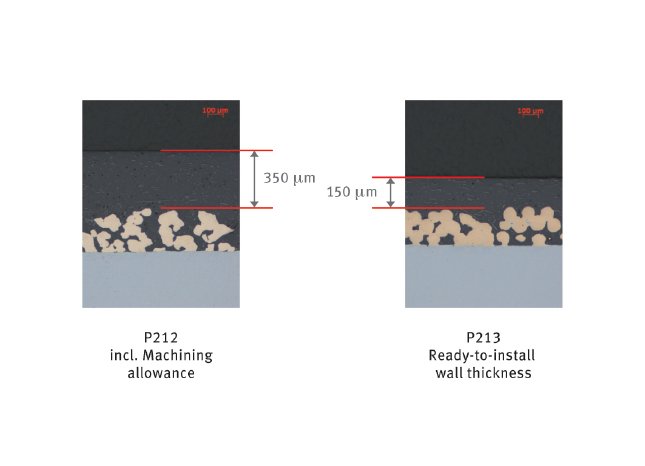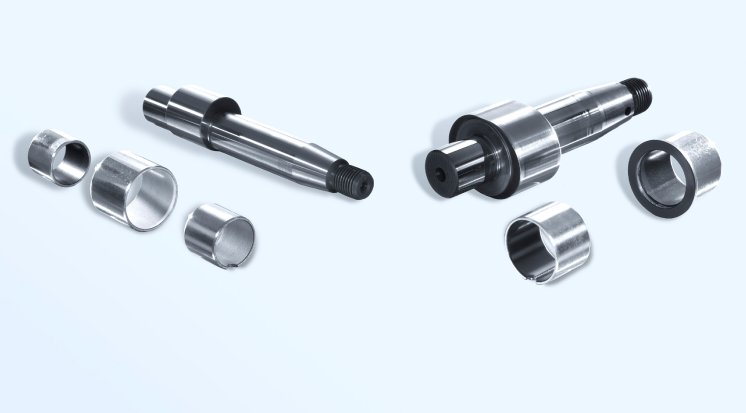Modern common rail pumps therefore already work at pressures of over 2000 bar. KS Gleitlager has a very good market position for pump bearings - the manufacturer here uses PEEK-based high-performance composite KS P212 and has now transferred the ready-to-install variant KS P213 over for inclusion in the series. It delivers a tribological performance nearly identical to KS P212, but is delivered to the customer as a ready-to-install plain bearing, i.e. without the previously required mechanical reworking after press fitting.
Plain bearings made from KS P212 have been used in large series productions since 2007. They consist of a PEEK-bronze-steel-composite and have proven their extreme wear resistance under the most difficult tribological conditions in various common rail pumps millions of times. The outstanding performance of the bearing system is on the one hand obtained thanks to the sophisticated material composition. On the other hand, the precise mechanical machining of the inner bearing diameter that takes place after press fitting ensures an exact bearing clearance and thus the best possible hydrodynamics.
KS Gleitlager has now developed the spinoff variant KS P213, a material that exhibits a filler material combination identical to KS P212 in the PEEK-sliding layer, thus attaining the same wear resistance level. The special feature of the new high-performance material lies in its novel bronze structure, which primarily ensures the secure bonding of the high-performance plastic composite to the steel backing. A sinter grain fraction specially formulated for use with this material enables maintenance of a tight pore volume tolerance in the bronze structure during the sintering process. Thus the composite volume absorbed by these pores in the subsequent impregnation process is kept extremely constant and allows the overall wall thickness to be very precisely adjusted. This advantage allows an adequate wall thickness tolerance for common rail pump bearings to be attained solely by forming and sizing in the subsequent plain bearing production process.
A plain bearing is thus made available which - assuming proper dimensioning - guarantees attainment of the necessary clearance between the shaft and the bearing simply by press fitting the bearing into the housing in an oriented fashion. Machining the inner bearing diameter after press fitting can accordingly be dispensed with. Common rail pumps equipped with plain bearings made of KS P213 have already been successfully utilized in several types of pumps currently in series production.


